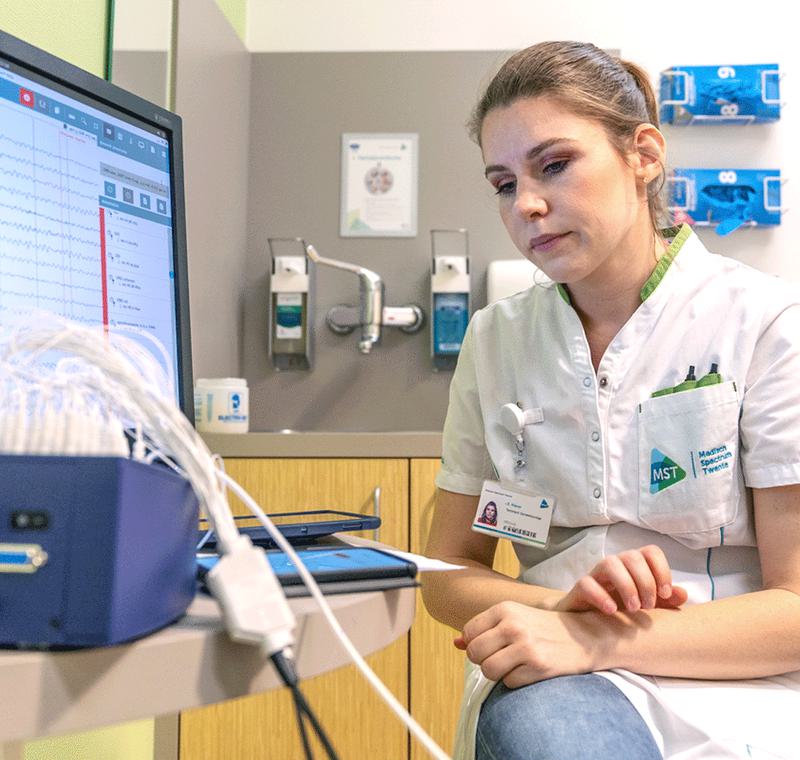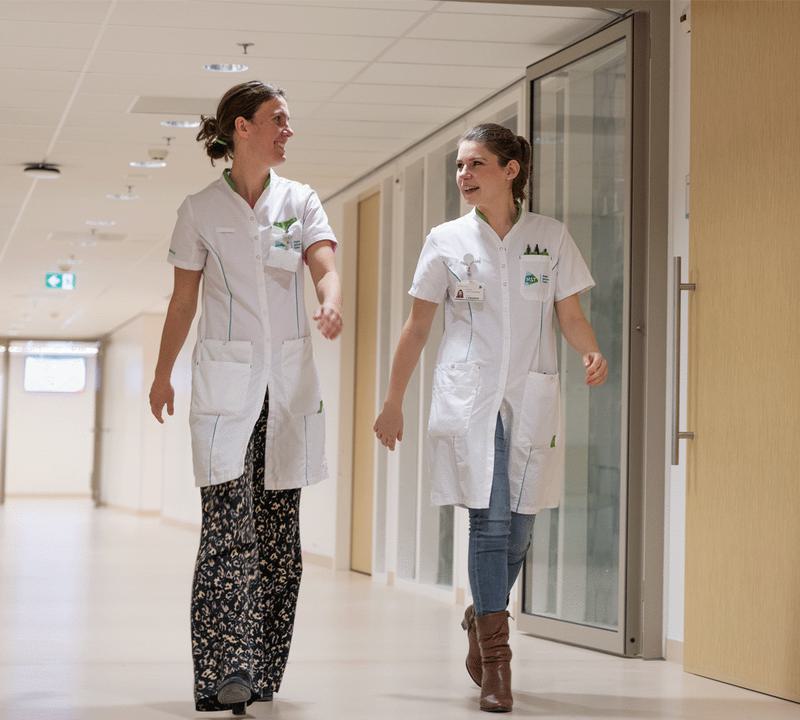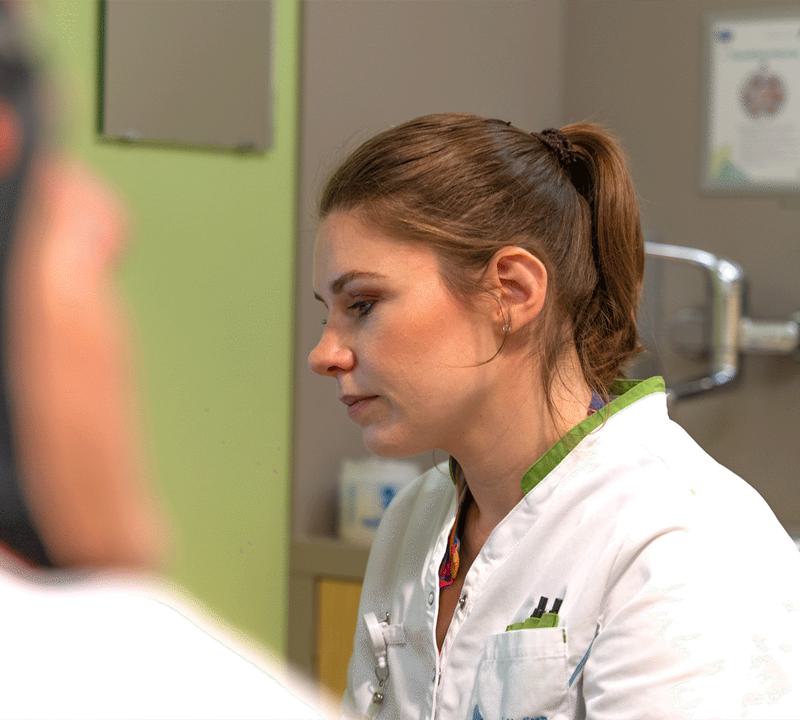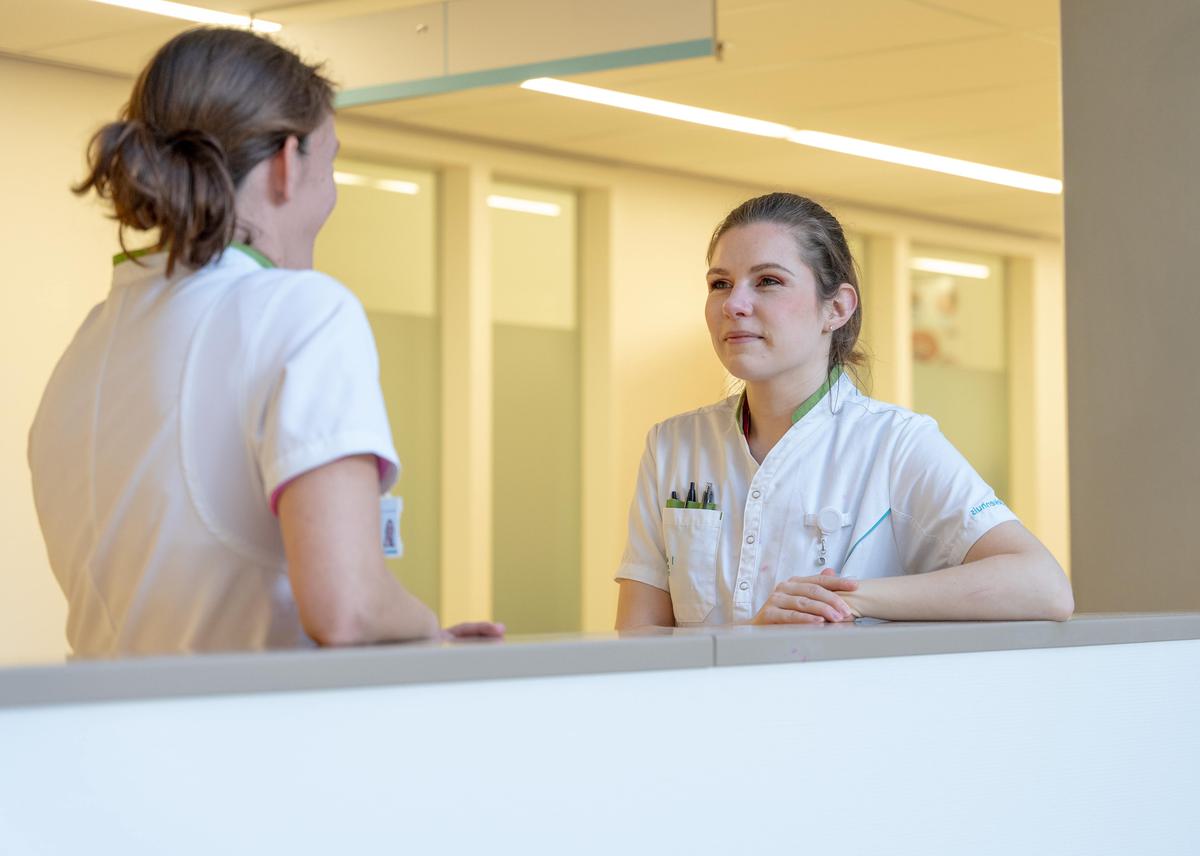Diagnosing epilepsy faster with AI: Emilie Kroeze-Klaver does pioneering research as Reggeborgh Research Fellow
About two hundred thousand people in the Netherlands have epilepsy. To help this group of people even better, Reggeborgh Research Fellow Emilie Kroeze-Klaver is conducting research into the diagnosis and treatment of epilepsy at the Neurocentre at the Medisch Spectrum Twente (MST) hospital.

Artificial intelligence (AI) reduces analysis time
When diagnosing epilepsy, a brain film is usually taken for about 20 minutes. This is sufficient to detect epilepsy in 20-30% of patients. But for many people, it does not provide clarity. If there is any doubt, a 24-hour brain film can be taken. However, analysing these long recordings takes a lot of time and, due to staff shortages in healthcare, there is not always enough capacity to do it.
Emilie is, therefore, working on a research project involving artificial intelligence. A special AI algorithm can spot abnormalities in the brain film and automatically generate a detailed report for the doctor. This reduces the analysis time from several hours to just 15 to 30 minutes. This approach not only provides significant efficiencies in terms of time and cost of care, but also ensures that patients get clarity sooner.
Deep brain stimulation as a treatment
Many people with epilepsy can be treated well with medication. But for a proportion of patients, drugs do not have sufficient effect. For them, a different kind of treatment might be a solution. Emilie focuses her research specifically on a form of therapy where electrodes are placed deep inside the brain, so-called ‘deep brain stimulation’. Through these electrodes, a stimulator sends electrical stimuli to the brain to reduce epileptic seizures. Setting up the stimulator is a tricky process that sometimes takes years, as every patient needs different settings. The latest stimulators can not only send stimuli, but also measure brain activity. Emilie explores whether these measurements can help find the right settings faster and better. This would be very welcome for the patients concerned.


Learning outside one's own field
The Reggeborgh Research Fellowship offers Emilie not only the chance to do research but also to develop more broadly.
‘The Reggeborgh Research Fellowship plays an important role in my career development and personal growth. For example, I took part in the implementation science workshop hosted by Alfred Vos, CEO of VolkerWessels. This experience has taught me how to more effectively transform research into practical applications, increase my own expertise, and boost the impact of my work.’
- Emilie Kroeze-Klaver

Improving healthcare for people with epilepsy
Emilie is determined to further develop the technology and show that it can contribute greatly to better and more efficient healthcare. Her main goal is to improve healthcare for people with epilepsy. She wants to achieve this by, on the one hand, helping healthcare providers make setting up deep brain stimulators faster and easier. And on the other hand, she wants to help make the use of artificial intelligence in analysing brain imaging standard procedure in healthcare. The research team has already shown that the algorithm achieves similar results to a healthcare professional.¹ This offers promising opportunities for the future.
